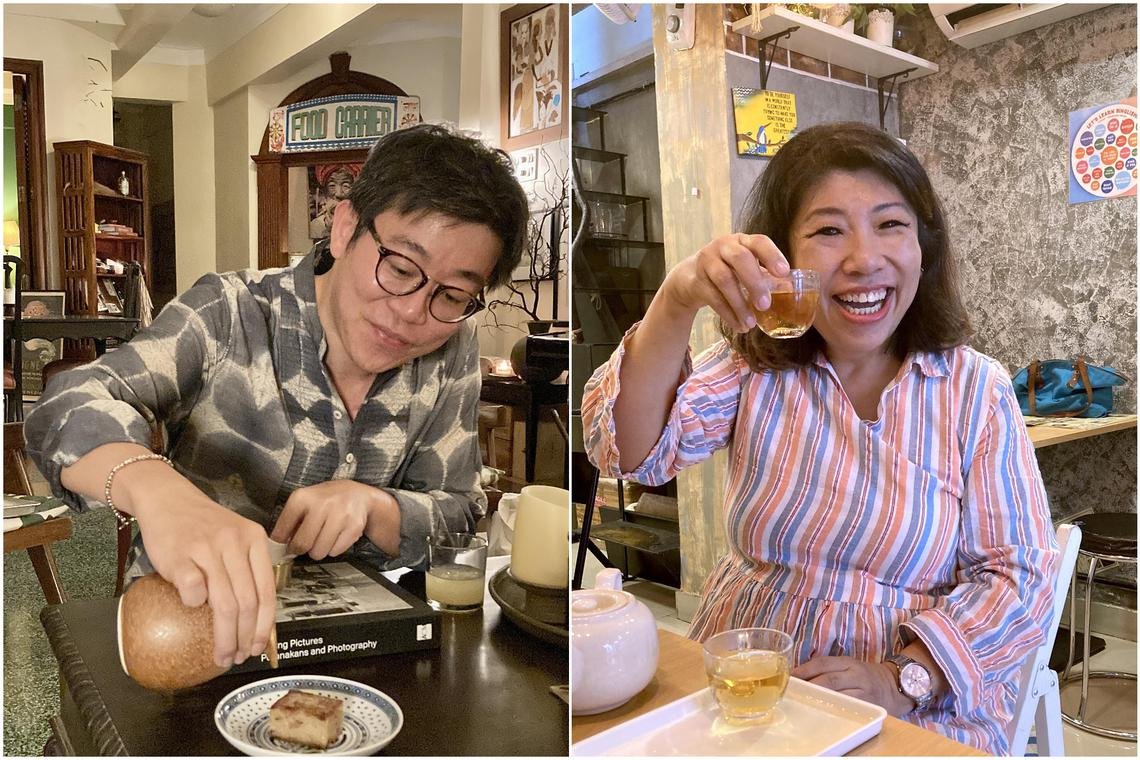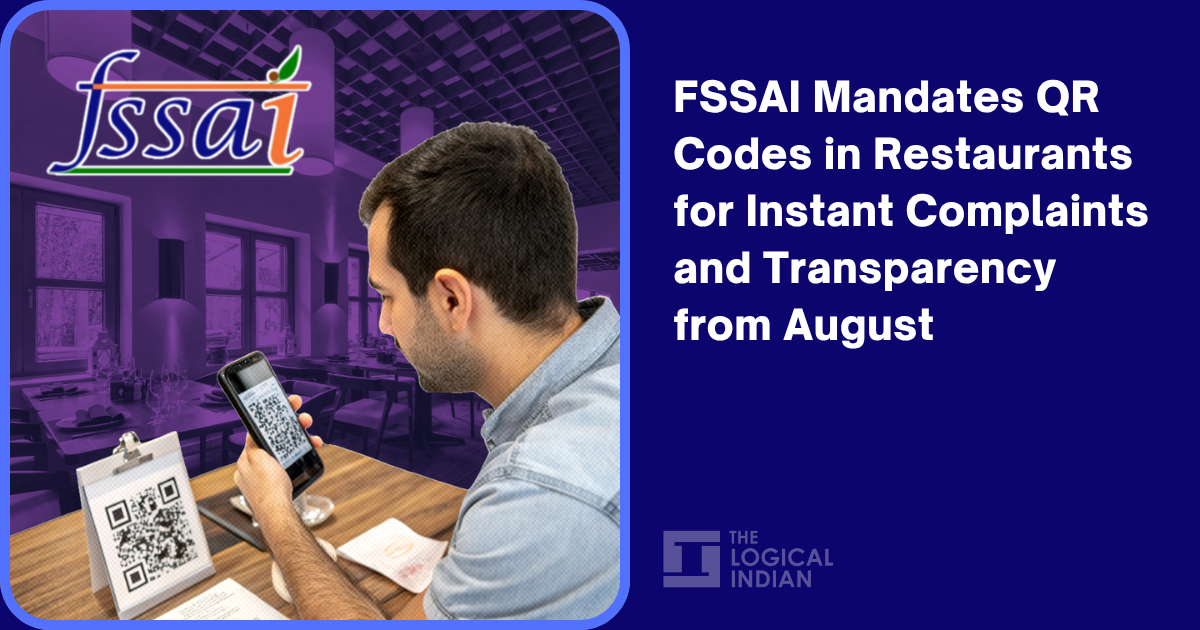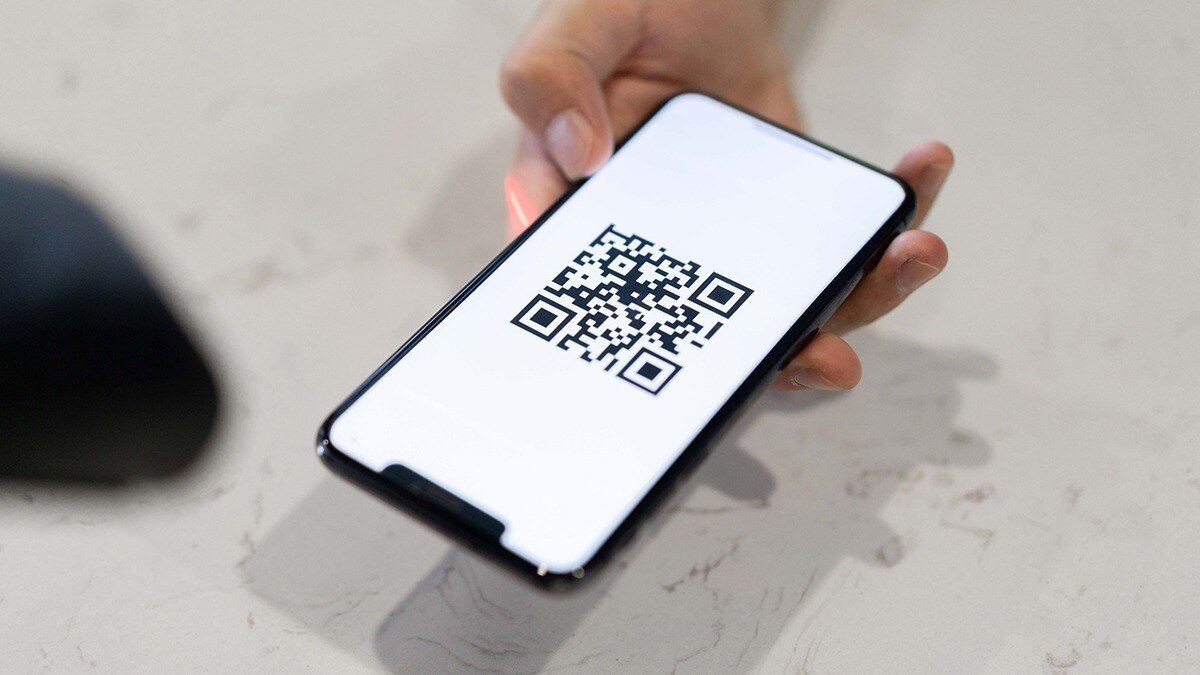Restaurants & Food
Yeon Woo-jin and cast face culinary surprises while filming 'Ddugbugi Mat Chongsa' in Italy – CHOSUNBIZ – Chosunbiz

Restaurants & Food
Char kway teow in India? Meet the Singaporeans bringing local food to Mumbai

MUMBAI – One runs a supper club that evokes memories of home-cooked flavours, and the other is billed as the city’s first Singaporean street food restaurant.
For these two chefs abroad, food is a way to stay connected to their Singaporean identity.
Restaurants & Food
FSSAI Mandates QR Codes in Restaurants for Instant Complaints and Transparency from August

India’s Food Safety and Standards Authority (FSSAI) has implemented a new mandate from August 2025, requiring all food businesses—such as restaurants, cafes, cloud kitchens, and food trucks—to clearly display both their FSSAI license and a QR code linked to the Food Safety Connect App at key customer touchpoints.
This QR code allows consumers to instantly check food license details and raise concerns about food safety or hygiene. The aim is to strengthen consumer safety and regulatory transparency by enabling real-time, direct reporting of issues to authorities for quick resolution.
Enhancing Consumer Safety Through Digital Empowerment
Under the new rules, the QR code and license must be prominently displayed at entrances, billing counters, seating areas, and digital platforms like food delivery apps and websites.
By scanning the QR code, consumers can verify if an establishment is genuinely licensed, report hygiene violations, mislabelling, or unsafe practices, and even track the progress of their complaints in real time. FSSAI officials emphasise that this initiative “empowers consumers and modernises India’s food safety framework,” providing “a user-friendly tool for swift grievance redressal and heightened accountability”.
Who Must Comply – and What’s at Stake?
The directive applies to all food business operators (FBOs): restaurants, cafes, catering units, retail food outlets, cloud kitchens, food trucks, and even online delivery aggregators. Failure to comply may lead to penalties or suspension of food licenses, as per the Food Safety and Standards Act.
FSSAI highlights that this shift was driven by recent food safety lapses and widespread consumer complaints about poor hygiene and misleading labelling. With this move, India aims to foster a safer, more transparent, and trustworthy food landscape for every consumer.
Expert Advice: How Consumers and Businesses Can Stay Safe
Food safety experts and advocacy groups have welcomed the QR code initiative, calling it a much-needed reform for India’s fast-evolving food sector. Experts advise consumers to regularly scan the QR code whenever they visit a food outlet, always look out for a valid FSSAI license, and use the Food Safety Connect App to flag issues regarding hygiene or food quality.
For food business operators, experts recommend educating staff and customers about the new requirements, keeping the license and QR code up to date, and responding promptly to complaints. Professional food hygiene auditors and compliance consultants are now advising businesses to conduct regular kitchen audits, maintain proper documentation, and train teams on hygiene protocols to avoid penalties and protect business reputation.
Building a Transparent Food System – The Road Ahead
The introduction of digital QR code reporting marks a significant shift in food regulation, encouraging transparent operations and timely action on consumer complaints. By simplifying redressal avenues and holding food businesses to higher standards, this initiative takes Indian consumer protection a step further.
The Food Safety Connect App is available on both Android and iOS, ensuring wide accessibility. FSSAI encourages all food sector stakeholders to see this not just as regulatory compliance, but as a collective mission to build trust and ensure public health.
The Logical Indian’s Perspective
At The Logical Indian, we see this bold step as a cornerstone for a safer, digitally enabled, and empathetic consumer ecosystem. With robust reporting tools and strict accountability, Indian diners are now better equipped than ever to demand safe food and fair practices.
FSSAI mandates display of the ‘Food Safety Connect’ App QR Code at all food outlets- a move aimed at empowering consumers by providing them with a direct & user-friendly platform for grievance redressal. #FSSAIRelease @PIB_India @MoHFW_INDIA
Read More – https://t.co/xWLQgPJU8i pic.twitter.com/U8w8tPlASy
— FSSAI (@fssaiindia) August 1, 2025
Restaurants & Food
FSSAI mandates QR codes at restaurants for easy complaints

The Food Safety and Standards Authority of India (FSSAI) has issued a fresh directive for all food business operators (FBOs) across the country, including restaurants, cafs, dhabas, and street-side eateries, to visibly display their FSSAI licence or registration certificate along with a QR code that links to the Food Safety Connect App. This move, according to the authority, is aimed at empowering consumers and making it easier for them to file complaints about food safety, hygiene, and misleading product labels.
The QR code, which is now a mandatory part of the FSSAI licence, must be placed in areas easily visible to customers, such as entrances, billing counters, or dining sections. Customers can simply scan the QR code using their smartphones and be redirected to the app, where they can submit complaints or view key information about the outlet’s registration status.
Once a complaint is submitted through the app, it is automatically routed to the correct jurisdictional authority for faster resolution. This direct reparation mechanism is expected to save time, cut through bureaucratic delays, and improve accountability within the food sector.
In a statement, the FSSAI said that this initiative is part of a broader strategy to ensure that food safety remains a priority for businesses and consumers alike. “This measure is aimed at empowering consumers by providing them with a direct and user-friendly platform for grievance reparation,” the authority noted.
The app not only allows users to report hygiene and safety violations but also helps them check if a food outlet is officially registered or licensed. Users can also stay updated on FSSAI’s latest food safety alerts and initiatives.
Additionally, FSSAI has asked all FBOs to integrate the QR code across their digital platforms, including websites and food delivery apps, wherever applicable. This would allow consumers to verify details or report complaints even while ordering food online.
The new rule comes shortly after FSSAI issued warnings to e-commerce platforms to comply with food safety norms. These platforms are now also required to display their FSSAI licence or registration numbers clearly on all receipts, invoices, and cash memos issued to customers.
By making it mandatory to display QR codes at physical locations and online, FSSAI aims to build greater trust among consumers and promote a culture of safety, transparency, and accountability in India’s vast food and hospitality sector.
– Ends
-

 Brand Stories2 weeks ago
Brand Stories2 weeks agoBloom Hotels: A Modern Vision of Hospitality Redefining Travel
-

 Brand Stories1 week ago
Brand Stories1 week agoCheQin.ai sets a new standard for hotel booking with its AI capabilities: empowering travellers to bargain, choose the best, and book with clarity.
-

 Destinations & Things To Do2 weeks ago
Destinations & Things To Do2 weeks agoUntouched Destinations: Stunning Hidden Gems You Must Visit
-

 Destinations & Things To Do1 week ago
Destinations & Things To Do1 week agoThis Hidden Beach in India Glows at Night-But Only in One Secret Season
-

 AI in Travel2 weeks ago
AI in Travel2 weeks agoAI Travel Revolution: Must-Have Guide to the Best Experience
-

 Brand Stories1 month ago
Brand Stories1 month agoVoice AI Startup ElevenLabs Plans to Add Hubs Around the World
-

 Brand Stories3 weeks ago
Brand Stories3 weeks agoHow Elon Musk’s rogue Grok chatbot became a cautionary AI tale
-

 Asia Travel Pulse1 month ago
Asia Travel Pulse1 month agoLooking For Adventure In Asia? Here Are 7 Epic Destinations You Need To Experience At Least Once – Zee News
-

 AI in Travel1 month ago
AI in Travel1 month ago‘Will AI take my job?’ A trip to a Beijing fortune-telling bar to see what lies ahead | China
-

 Brand Stories2 weeks ago
Brand Stories2 weeks agoContactless Hospitality: Why Remote Management Technology Is Key to Seamless Guest Experiences

You must be logged in to post a comment Login